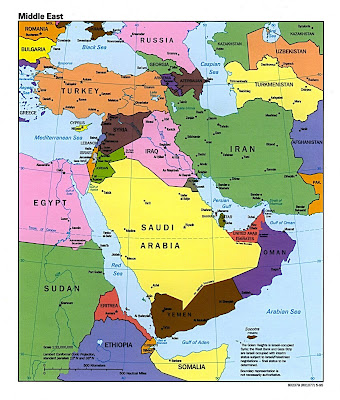http://www.reuters.com/article/idUSTRE64O1QH20100525?type=ousivMolt
(Reuters) - Gulf oil ministers on Tuesday played down the slide in oil prices below $70 a barrel and said OPEC had no plans to call an emergency meeting to discuss supply policy.
U.S. crude tumbled below $68 on Tuesday and has fallen by nearly $20 in three weeks on growing fears that Europe's debt crisis would derail the global economic recovery.
The price is below the $70 to $80 range that top oil exporter Saudi Arabia and others in OPEC have said is fair for both producers and consumers.
"Not yet, so what?" Kuwait's Oil Minister Sheikh Ahmad al-Abdullah al Sabah told reporters at the country's parliament when asked if he was worried about the price drop.
United Arab Emirates Oil Minister Mohammed al-Hamli also downplayed the recent fall.
"We have had lower prices many many times before...the price reflects market conditions," Hamli told reporters on the sidelines of an industry event in Qatar's capital city.
The top energy official of Libya on Monday was less sanguine than his Gulf colleagues. He said the group was very concerned about the fall in oil prices and was watching the market closely, although it was too early to say if the group needed to take action.
Sheikh Ahmad himself said earlier in May that $65 would ring alarm bells for OPEC. Algeria's oil minister has also said that a price in the $60s would be uncomfortable for OPEC members.
Both Sheikh Ahmad and Hamli said on Tuesday OPEC had no plans to meet before its next scheduled gathering in October.
ENCOURAGING INVESTMENTS
An oil price below $70 would be too low to encourage the investment needed in boosting future energy capacity, Hamli said.
"$70 to $80 would really help maintain the momentum for investment," he said. "It's very important to keep that price going for investment... You don't want to see a sudden change in investment, you want to keep increasing capacity because demand will pick up one day... We need a price that is fair to producers."
The Kuwaiti minister on Tuesday called on fellow OPEC members to stick more closely to the group's output targets.
"We ask for more compliance, that's all," Sheikh Ahmad said.
Core Gulf OPEC members Saudi Arabia, the UAE, Kuwait and Qatar have stuck closely to their targets, but rising oil prices have encouraged some other members to relax adherence to OPEC's production curbs.
Most estimates suggest production from the Organization of the Petroleum Exporting Countries has been rising since early 2009. The group's compliance with 4.2 million bpd of pledged cutbacks has fallen to around 51 percent, according to Reuters estimates.
The producer group, supplier of more than a third of the world's oil, has kept oil supply targets steady since late 2008.
(Reporting by Diana Elias in Kuwait, and Amena Bakr and Regan Doherty in Doha; writing by Luke Pachymuthu and Simon Webb; editing by James Jukwey)

No comments:
Post a Comment